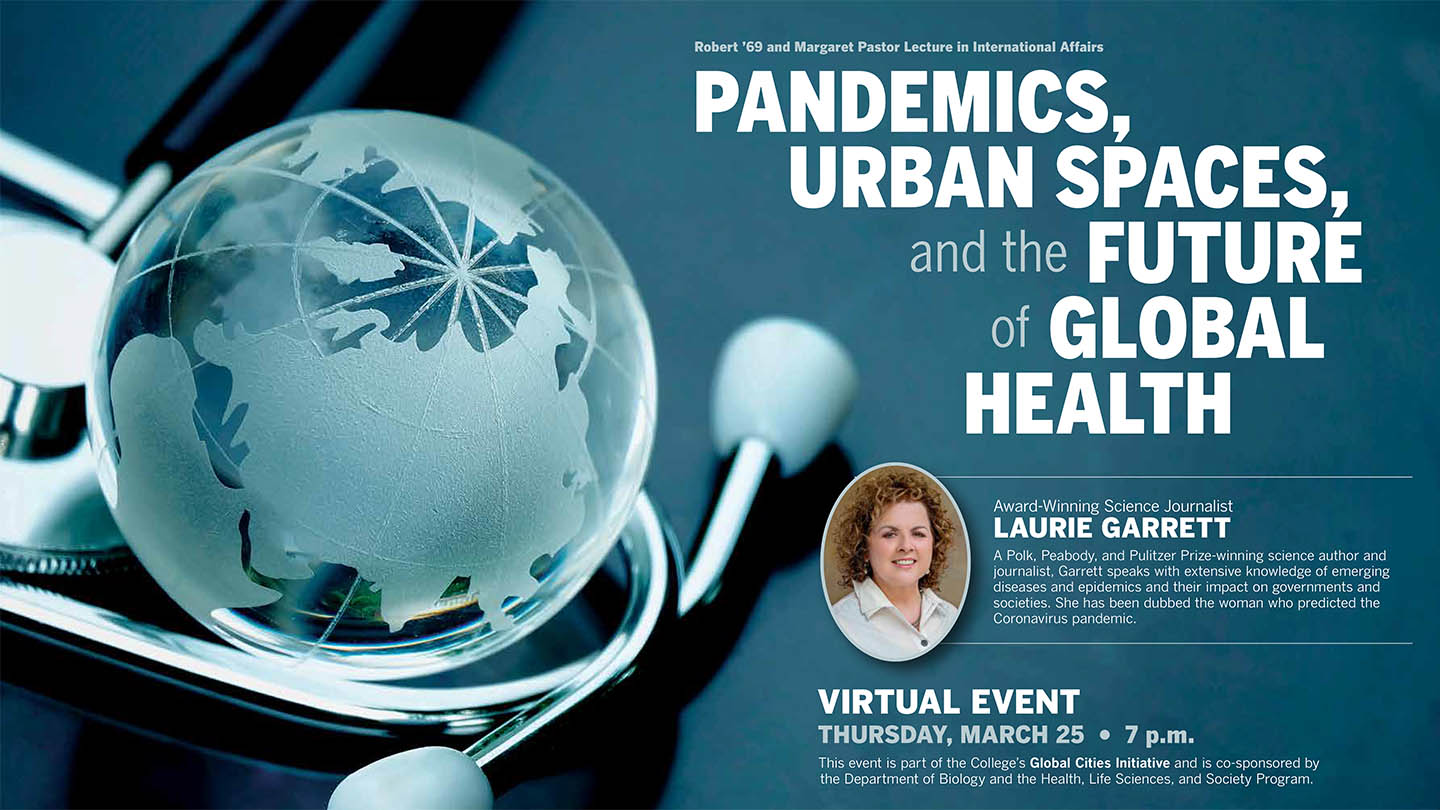Two-year multidisciplinary program will feature panels, speakers, exhibits, and other events centered on global cities and related topics
 By Stella Katsipoutis-Varkanis
By Stella Katsipoutis-Varkanis
With the opening of the spring 2021 semester, Lafayette’s Global Education and Research Advisory Council, which is one of the College’s academic initiatives, launched a two-year initiative that focuses classroom and scholarly investigations on global cities. The multidisciplinary program aims to create, connect, and publicize teaching and scholarship under the sub-themes of pandemics, power, production, and peripheries.
Co-chaired by Angelika von Wahl, professor of international affairs, Michelle Geoffrion-Vinci, professor of foreign languages and literatures, and Ingrid Furniss, associate professor of art, the Global Cities Initiative will feature panels, presentations, speakers, films, performances, exhibits, and other events that focus on the overarching theme of global cities and related topics.
All interested departments, programs, and faculty who want to investigate more deeply the past, present, and future of cities as important places to live, produce, and govern are invited to participate and to submit proposals for the program.
“We welcome all faculty who are interested in global issues to be involved, whether they specifically teach global topics or would like to integrate them into their classes,” says Furniss. “Limited funding is also available. If faculty members are planning an event related to global cities, please contact us. We’re open to any creative ideas.”
The series opened this semester with a concentration on the issue of pandemics and global cities, and will potentially cover topics such as the spread of disease in cities throughout history and art; the scientific tracing of pandemics; the social, economic, and political effects of pandemics; and how cities have or will evolve as they grapple with COVID-19. The focus of the program will then shift to the power sub-theme in the fall 2021 semester, production in spring 2022, and peripheries in fall 2022.
Furniss explains that the Global Cities Initiative was born out of not only the council’s interest in integrating various disciplines across the Lafayette campus, but also the importance of helping to shape scholars into global citizens—especially now that, for the first time in history, more people globally live in cities than in the countryside.
“For professors, it’s a way for us to engage and share ideas with one another, both in research and in our teaching. We have so much to learn from one another,” she says. “We also need to develop students who are not just aware of the here and now of our own local environment, but aware of challenges that the world faces and the similarities we share. It’s important to see how we can all interact and collaborate with one another to make a better future.”
 By Stella Katsipoutis-Varkanis
By Stella Katsipoutis-Varkanis


